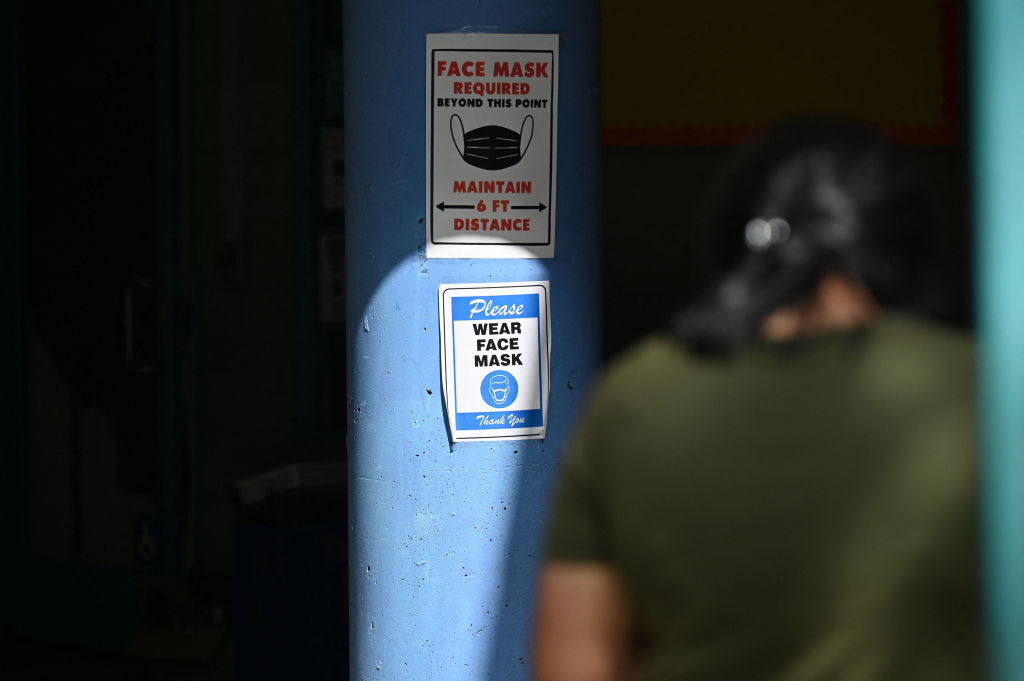How we might reach a pandemic 'endgame'


A free daily email with the biggest news stories of the day – and the best features from TheWeek.com
You are now subscribed
Your newsletter sign-up was successful
Like all pandemics, that of COVID-19 will eventually end. But the million dollar question is...how? And what will that "endgame" look like?
A world without COVID is likely not a world in which we will exist, argues The Atlantic's Ed Yong. Instead, the pandemic will cease when almost everyone has immunity, "preferably because they were vaccinated or alternatively because they were infected and survived." Once that point is reached, the pandemic itself will "peter out," but COVID will live on, as an endemic virus that, as a result of vaccination and immunity, has become less of a problem.
"Before, it still felt possible that a really concerted effort could get us to a place where COVID-19 almost didn't exist anymore, said Eleanor Murray, an epidemiologist at Boston University. "But Delta has changed the game."
The Week
Escape your echo chamber. Get the facts behind the news, plus analysis from multiple perspectives.

Sign up for The Week's Free Newsletters
From our morning news briefing to a weekly Good News Newsletter, get the best of The Week delivered directly to your inbox.
From our morning news briefing to a weekly Good News Newsletter, get the best of The Week delivered directly to your inbox.
To speed the pandemic's conclusion process along, "the world needs to stay alert," The Atlantic insists. Samuel Scarpino, an infectious disease expert, makes the case for a "nimble, comprehensive system that might include regular testing, wastewater monitoring, genetic sequencing, Google-search analyses, and more." The system, which could also be used for future pandemics, would track outbreaks and epidemics the same way meteorologists forecast storms and hurricanes. "My phone can tell me if I need to carry an umbrella, and I want it to tell me if I should put a mask on," Scarpino said.
As far as readying ourselves for the next pandemic goes, preventative measures like improving building ventilation or wearing masks when sick (not just with COVID) might help, writes Yong. Rather than allowing ourselves to feel defeated by the current surge, perhaps this is an opportunity to instead "rethink our attitudes about the viruses we allow ourselves to inhale." Read more at The Atlantic.
A free daily email with the biggest news stories of the day – and the best features from TheWeek.com
Brigid Kennedy worked at The Week from 2021 to 2023 as a staff writer, junior editor and then story editor, with an interest in U.S. politics, the economy and the music industry.
-
 Nuuk becomes ground zero for Greenland’s diplomatic straits
Nuuk becomes ground zero for Greenland’s diplomatic straitsIN THE SPOTLIGHT A flurry of new consular activity in the remote Danish protectorate shows how important Greenland has become to Europeans’ anxiety about American imperialism
-
 ‘This is something that happens all too often’
‘This is something that happens all too often’Instant Opinion Opinion, comment and editorials of the day
-
 House votes to end Trump’s Canada tariffs
House votes to end Trump’s Canada tariffsSpeed Read Six Republicans joined with Democrats to repeal the president’s tariffs
-
 Blue Origin launches Mars probes in NASA debut
Blue Origin launches Mars probes in NASA debutSpeed Read The New Glenn rocket is carrying small twin spacecraft toward Mars as part of NASA’s Escapade mission
-
 Dinosaurs were thriving before asteroid, study finds
Dinosaurs were thriving before asteroid, study findsSpeed Read The dinosaurs would not have gone extinct if not for the asteroid
-
 SpaceX breaks Starship losing streak in 10th test
SpaceX breaks Starship losing streak in 10th testspeed read The Starship rocket's test flight was largely successful, deploying eight dummy satellites during its hour in space
-
 Rabbits with 'horns' sighted across Colorado
Rabbits with 'horns' sighted across Coloradospeed read These creatures are infected with the 'mostly harmless' Shope papilloma virus
-
 Lithium shows promise in Alzheimer's study
Lithium shows promise in Alzheimer's studySpeed Read Potential new treatments could use small amounts of the common metal
-
 Scientists discover cause of massive sea star die-off
Scientists discover cause of massive sea star die-offSpeed Read A bacteria related to cholera has been found responsible for the deaths of more than 5 billion sea stars
-
 'Thriving' ecosystem found 30,000 feet undersea
'Thriving' ecosystem found 30,000 feet underseaSpeed Read Researchers discovered communities of creatures living in frigid, pitch-black waters under high pressure
-
 New York plans first nuclear plant in 36 years
New York plans first nuclear plant in 36 yearsSpeed Read The plant, to be constructed somewhere in upstate New York, will produce enough energy to power a million homes
